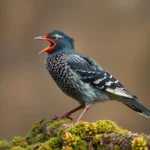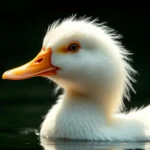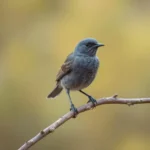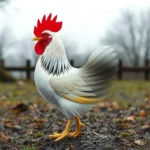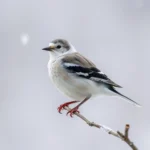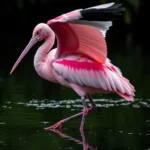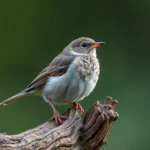The Northern Jacana: A Symbol of Adaptability and Freedom
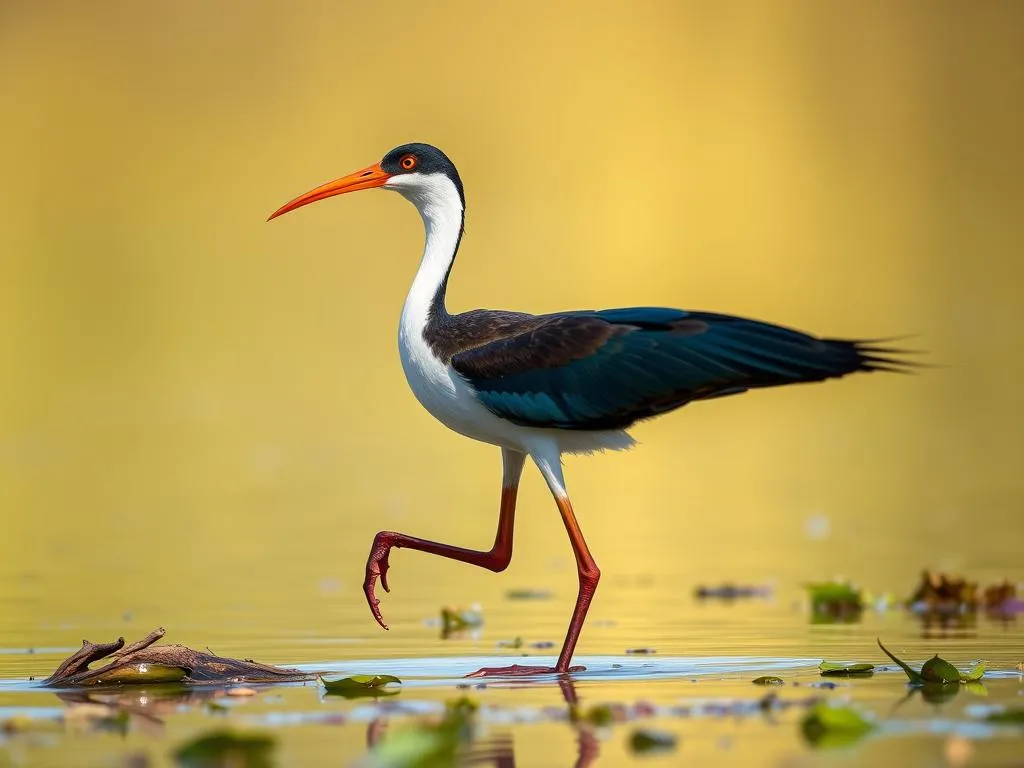
Disclaimer: Some images on this website are AI-generated artworks and may not accurately represent real animals.
The Northern Jacana (Jacana spinosa) is not only a fascinating bird but also a rich symbol of adaptability, resilience, and freedom. Known for its striking appearance and unique behaviors, the jacana thrives in wetland environments, captivating birdwatchers and nature enthusiasts alike. In this exploration, we will delve into the various aspects of the Northern Jacana, including its physical characteristics, social structure, and the profound symbolism it carries in our lives.
Understanding the Northern Jacana
Description and Habitat
The Northern Jacana is a medium-sized waterbird found in the wetlands of Central and South America. With its long legs and toes, this bird has adapted to walking on floating vegetation, such as lily pads. This remarkable trait allows it to navigate its aquatic habitat with ease.
| Physical Characteristic | Description |
|---|---|
| Length | 25-30 cm (10-12 in) |
| Wingspan | 50-60 cm (20-24 in) |
| Weight | 150-250 g (5.3-8.8 oz) |
| Plumage | Dark brown with bright yellow and chestnut accents |
| Beak | Long and pointed, typically yellow or orange |
The Northern Jacana prefers freshwater marshes, lagoons, and ponds, where it can find abundant food sources like insects, seeds, and small aquatic animals. Its habitat is crucial for its survival, as these wetlands provide not only nourishment but also a safe breeding ground.
Unique Traits
One of the most remarkable features of the Northern Jacana is its long toes, which help it distribute its weight across the soft surfaces of lily pads. This adaptation is essential for foraging and escaping predators. The jacana’s vibrant plumage, characterized by deep browns, yellows, and chestnuts, serves both as a means of attracting mates and as camouflage among the wetland flora.
Additionally, the Northern Jacana is known for its unique swimming abilities. Unlike most birds, it can swim with ease, using its long legs to paddle through water. This capability enhances its adaptability in fluctuating environments, allowing it to exploit various ecological niches.
Social Structure
The social behavior of the Northern Jacana is equally fascinating. These birds exhibit a polygynous mating system, where males may mate with multiple females. Males take on a significant role in parental care; they are responsible for incubating eggs and raising the young. This cooperative breeding strategy ensures that the offspring have a higher chance of survival in their challenging habitat.
Their mating rituals are elaborate, involving displays of courtship where males engage in vocalizations and show off their plumage. This social structure reflects the jacana’s adaptability and resilience, as they thrive in complex social environments while balancing the demands of parenting.
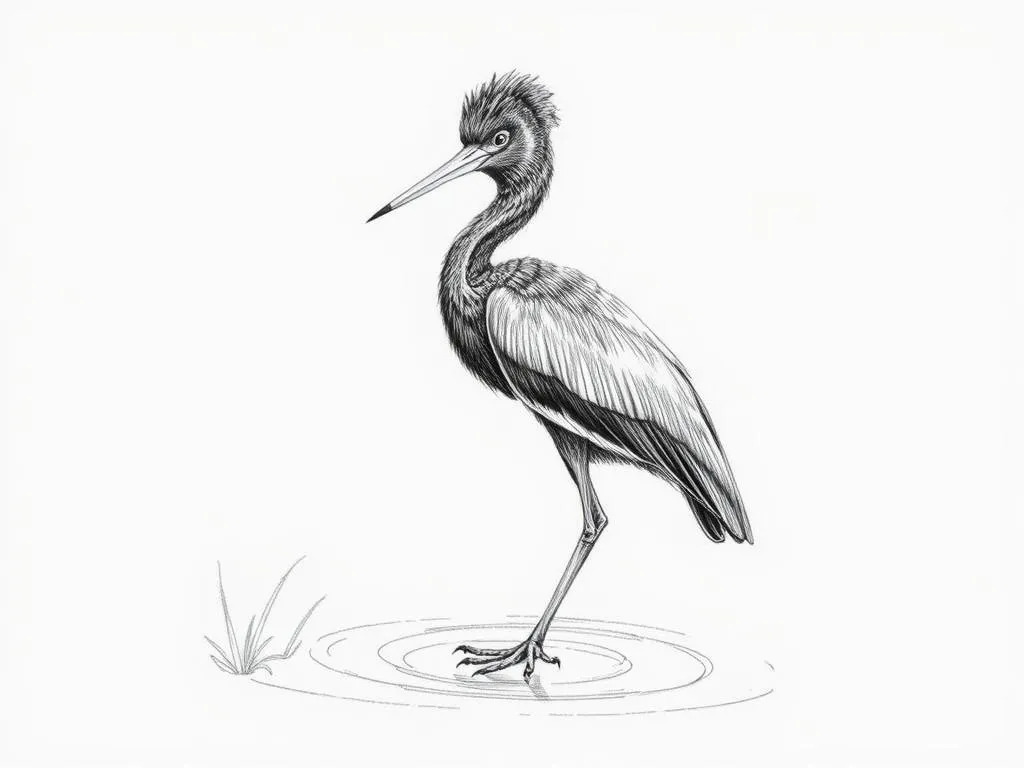
Symbolism & Spiritual Meaning
Adaptability and Resilience
The Northern Jacana is a potent symbol of adaptability. Its ability to thrive in diverse wetland habitats highlights the importance of resilience in the face of change. Just as the jacana navigates the challenges of its environment, we too can learn to adapt to life’s fluctuations. Embracing change and finding new paths, much like the jacana on lily pads, can lead to personal growth and fulfillment.
Freedom and Exploration
The jacana’s ability to walk on lily pads epitomizes freedom and exploration. It glides effortlessly across the surface of water, representing the courage to step into the unknown. This symbolism encourages us to explore new opportunities in our lives, urging us to venture beyond our comfort zones. The Northern Jacana invites us to embrace the spirit of adventure and the beauty of discovery.
Balance and Harmony
The habitat of the Northern Jacana serves as a metaphor for balance and harmony with nature. Wetlands are delicate ecosystems, and the jacana’s existence within this environment signifies a deep connection to the natural world. The bird’s behavior, from its foraging to its parenting, reflects a symbiotic relationship with its surroundings. This symbolism prompts us to seek balance in our own lives, fostering a sense of harmony between our personal desires and the world around us.
Northern Jacana in Dreams
Common Dream Scenarios
Dreams featuring the Northern Jacana can carry various meanings, often linked to the bird’s symbolism. Here are some common scenarios where the jacana may appear:
| Dream Scenario | Meaning |
|---|---|
| Seeing a jacana in flight | Represents liberation and new beginnings |
| Walking on lily pads | Suggests exploration and stepping into new opportunities |
| A jacana with young chicks | Symbolizes nurturing and the importance of family |
Interpretations of Flight and Movement
Dreaming of a Northern Jacana in flight is particularly significant. This imagery often symbolizes liberation and the potential for change. It can indicate that you are ready to break free from constraints or embark on a new journey. The jacana’s graceful flight encourages you to embrace your aspirations and pursue your passions.
Symbolism of Water
The connection between the Northern Jacana and aquatic environments adds another layer of meaning to dreams. Water is often associated with emotions and the subconscious. Therefore, encountering a jacana in a dream may signify a need to explore your feelings or navigate through emotional waters. The jacana’s ability to thrive in its environment reflects the importance of understanding and embracing our emotional landscapes.
Modern Interpretations
Cultural Significance
Across various cultures, the Northern Jacana holds a special place in folklore and mythology. In some indigenous communities, the jacana is seen as a totem of adaptability and survival. Its ability to thrive in challenging environments resonates with stories of resilience and perseverance. The jacana’s presence is often celebrated in local mythology, symbolizing the interconnectedness of nature and humanity.
Art and Literature
The Northern Jacana has also made its way into contemporary art and literature. Artists have embraced the jacana’s vibrant colors and unique form, often portraying it in nature-themed works. In literature, the jacana serves as a metaphor for freedom and exploration, inspiring stories that encourage readers to seek their own paths in life. This representation underscores the bird’s role as a symbol of the natural world and its beauty.
Conservation and Environmental Symbolism
In recent years, the Northern Jacana has become a symbol for wetland conservation efforts. As a species reliant on healthy ecosystems, the jacana’s presence highlights the importance of preserving these habitats for future generations. Environmental organizations often use the jacana as a rallying symbol, raising awareness about the threats facing wetlands and the need for conservation initiatives. The jacana thus embodies the connection between wildlife and our responsibility to protect their habitats.
Key Takeaways
- Unique Characteristics: The Northern Jacana is characterized by its long toes, vibrant plumage, and swimming abilities, symbolizing adaptability.
- Life Lessons: The jacana teaches us the importance of resilience, encouraging us to embrace change and explore new opportunities.
- Connection to Nature: The jacana’s existence in wetland ecosystems highlights the need for balance and harmony with the natural world.
Conclusion
The Northern Jacana stands out not only for its striking appearance but also for its rich symbolism. As a symbol of adaptability, resilience, and freedom, this remarkable bird inspires us to navigate life’s challenges with grace. Its ability to thrive in diverse environments reminds us of the importance of embracing change and exploring new horizons.
By reflecting on the lessons the jacana represents, we can cultivate a deeper connection to nature and strive for balance in our lives. The Northern Jacana is not just a bird; it is a reminder of the beauty of adaptability and the spirit of freedom that resides within us all.
